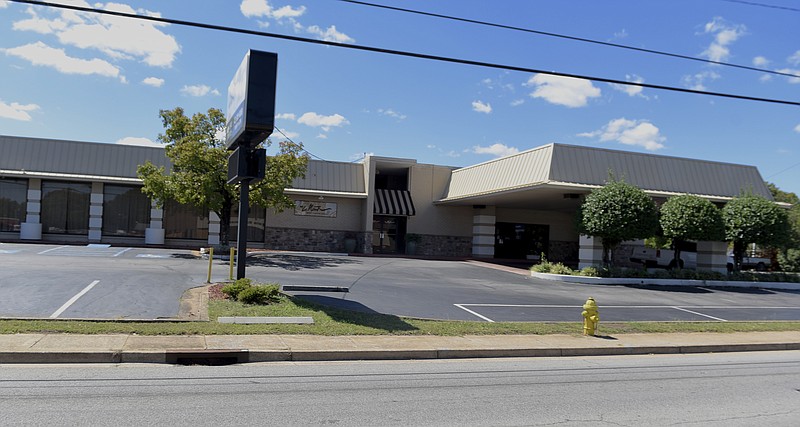Count housing for Chattanooga's homeless as one more item that, in part, will be covered by funds related to COVID-19.
On Tuesday night, the Chattanooga City Council approved a resolution to lease 50 rooms for homeless individuals at The Chatt Inn on 23rd Street and the Super 8 hotel on Birmingham Highway in Lookout Valley.
The city will pay $200,000 for the rooms for 90 days, but Joda Thongnopnua, chief policy officer for the city, acknowledged it was not a "long-term solution."
The vote on the resolution closed the books on a plan to house local homeless that began under former Mayor Andy Berke in March when the council unanimously approved a resolution to pay for rooms at the Budgetel Inn in East Ridge. However, East Ridge officials objected because they hadn't been told about it, and that plan was shelved.
Last month, a council resolution to lease rooms at The Chatt Inn died for lack of a motion, and a new request for proposals was sent out. That resulted in Tuesday's resolution to lease rooms at both hotels.
City Council Chairman Chip Henderson said two vendors were approved because no one vendor could promise 50 rooms. He said the least expensive rooms available would be rented to individuals who applied through the Chattanooga Regional Homeless Coalition.
The expense for the rooms will be reimbursed by the Federal Emergency Management Agency under the emergency status of the global pandemic. The number of homeless in the area due to the virus has increased at least 81%, according to the Chattanooga Regional Homeless Coalition's annual point-in-time count, or quadrupled to more than 1,500, according to the city's point-in-time count.
What would happen at the end of the 90 days and whether any additional relief funds could pay for more hotel nights is not clear, but Mayor Tim Kelly included seven points involving homelessness in his 100-day plan upon taking office. One of those was to "coordinate with the Chattanooga Housing Authority to develop and launch a housing choice voucher incentive package to boost [the] affordable housing supply."
Chattanooga and Hamilton County, like many cities and counties across the country, are awash in COVID relief funds supplied by one of the - depending on how you count them - six huge federal relief packages.
The question for cities, counties, school districts, hospitals, businesses and individuals is what will happen when the onetime funds dry up. Since the funds are to be used in ways linked - sometimes only tangentially - to the pandemic, those entities that have planned ahead will be in good shape. Those that haven't, won't be.
We have repeated in this space before what many national fiscal experts now believe - that excess spending in the relief packages will come back to haunt the country because of its now bloated debt. But that's a subject for another day.
What is more immediate is entities dealing with what is akin to getting a gigantic raise for parts of two years and then going back to live on what you made before.
Who finds that easy to do?
Earlier this week, Hamilton County, for instance, proposed an $833 million budget for fiscal 2022. The budget, $36 million more than last year's cautious, mid-COVID blueprint, funds a 4% raise for county employees and no tax increase. But it does not include an additional $71.3 million in federal relief funds the county was awarded for pandemic-related expenses.
Kelly has yet to present the city's 2022 budget, but it, like the county, will be able to count on federal funds of nearly $40 million.
The Hamilton County Schools budget for the next fiscal year is $434 million, which is $14 million higher than fiscal 2021 and includes 1% raises and step increases. But the district is also getting $40.5 million from the federal government, which is earmarked for virus-related spending.
At Erlanger Health System, the area's public hospital, officials are projecting a net income of $20 million for fiscal 2022. But they'll have to earn that without the $55.9 million in federal relief funds they have received, and of which the hospital still has $25 million to spend before June 30.
The county and the city, especially, were in excellent financial shape before the pandemic and remain fiscally sound. But time will tell how all the local entities do without the "free" funds that allowed them to concentrate on other priorities over the past year.
Unfortunately, it's always hard to put that kind of genie back in the bottle.
